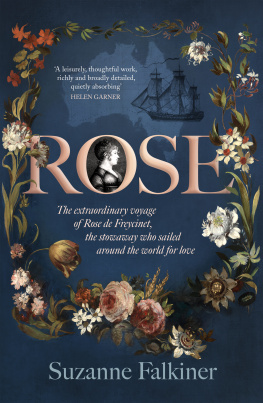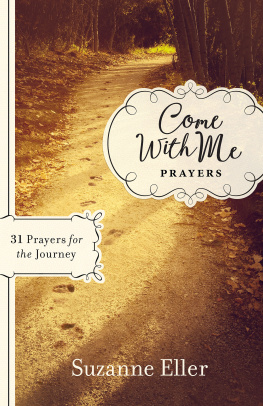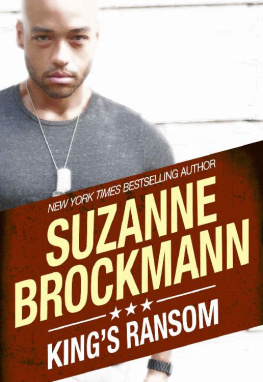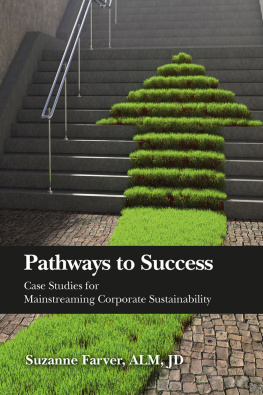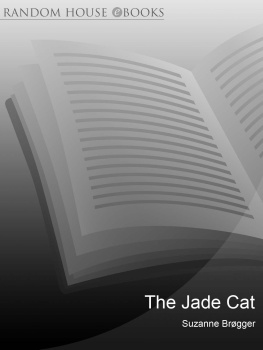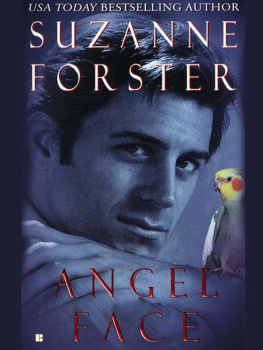Suzanne Falkiner - Rose
Here you can read online Suzanne Falkiner - Rose full text of the book (entire story) in english for free. Download pdf and epub, get meaning, cover and reviews about this ebook. year: 2022, publisher: ABC Books, genre: Non-fiction. Description of the work, (preface) as well as reviews are available. Best literature library LitArk.com created for fans of good reading and offers a wide selection of genres:
Romance novel
Science fiction
Adventure
Detective
Science
History
Home and family
Prose
Art
Politics
Computer
Non-fiction
Religion
Business
Children
Humor
Choose a favorite category and find really read worthwhile books. Enjoy immersion in the world of imagination, feel the emotions of the characters or learn something new for yourself, make an fascinating discovery.
- Book:Rose
- Author:
- Publisher:ABC Books
- Genre:
- Year:2022
- Rating:5 / 5
- Favourites:Add to favourites
- Your mark:
- 100
- 1
- 2
- 3
- 4
- 5
Rose: summary, description and annotation
We offer to read an annotation, description, summary or preface (depends on what the author of the book "Rose" wrote himself). If you haven't found the necessary information about the book — write in the comments, we will try to find it.
Rose — read online for free the complete book (whole text) full work
Below is the text of the book, divided by pages. System saving the place of the last page read, allows you to conveniently read the book "Rose" online for free, without having to search again every time where you left off. Put a bookmark, and you can go to the page where you finished reading at any time.
Font size:
Interval:
Bookmark:
Contents
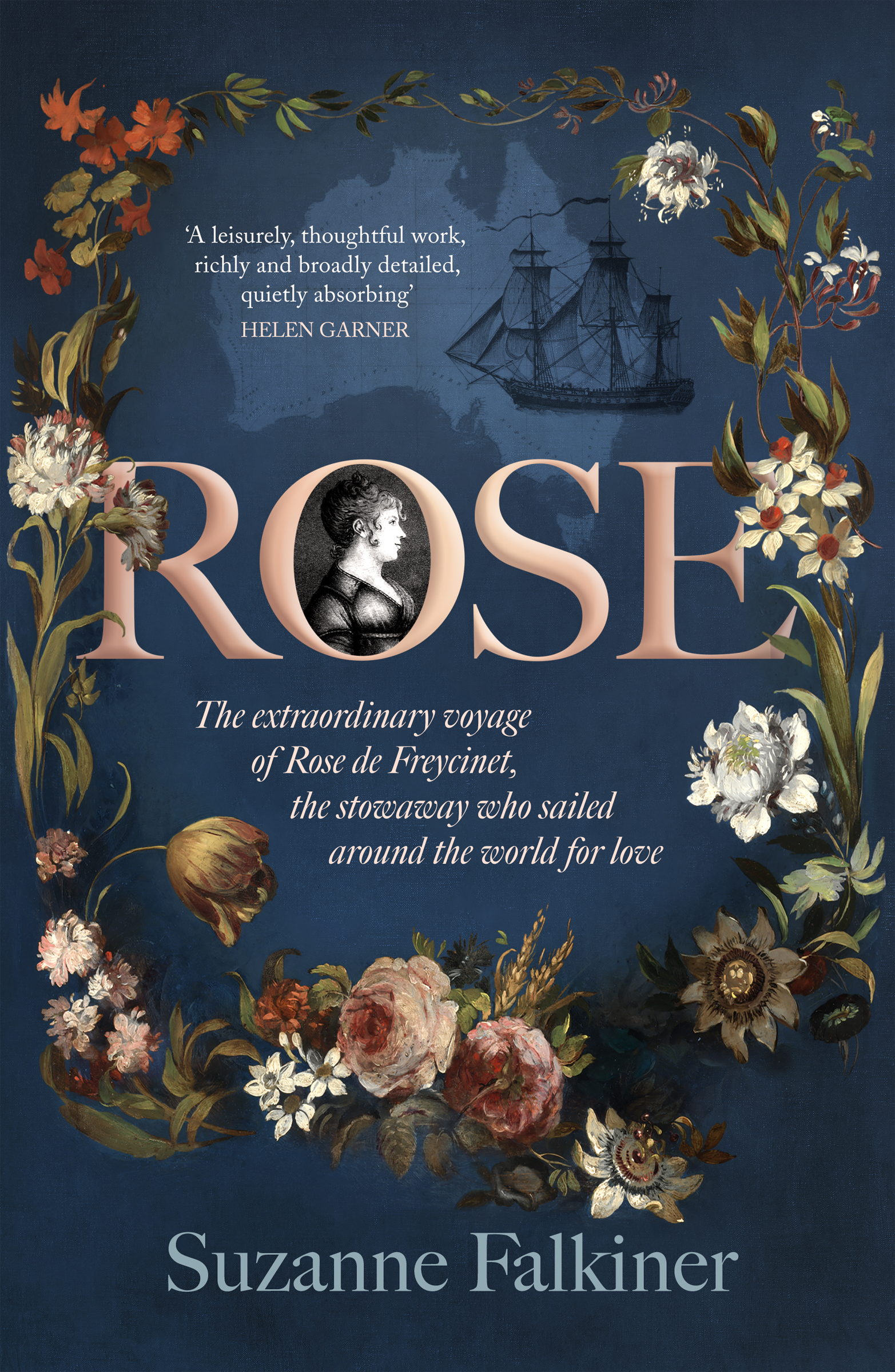

Il y a le roman, et il y a lhistoire. Daviss critiques ont considr le roman comme de lhistoire qui aurait pu tre, lhistoire comme un roman qui avait eu lieu.
There is the novel, and there is history. Some wise critics have thought of the novel as history that might have been, and history as a novel that did happen.
Andr Gide, Les Caves du Vatican, 1914
I sometimes remember that my mother wrote to me, when I was still in Toulon, that a map of Paris and its surrounds was enough at first for her to find each of the places where we had lived, then afterwards we needed a map of France and, finally, only on a map of the world would she be able to follow us. Now, a very detailed map of Oceania if there is one would be needed to know where we are.
Rose de Freycinet, somewhere in the Pacific Ocean, 9 December 1818
WHEN ROSE DE FREYCINET first set foot in Australia, on 16 September 1818 in an area now known as Shark Bay, the country appeared to her entirely unpromising. On her first landfall beyond European colonial outposts, a world away from the tidy green fields and forests of France, she was confronted by a stark terrain and a wandering, naked people she found strange and frightening in appearance, and with whom she had no common language. Here, in place of elegant old towns and villages built of stone, the temporary shelters and campfires of the inhabitants were quickly dismantled by the wind when they moved on, and the flat inland horizon was sandy, almost treeless.
Rose, the daughter of a widowed schoolmistress, had left her mothers classroom to marry a naval officer 15 years her senior. Defying naval edicts and social convention, she had hidden herself on her husbands ship because, deeply in love, she could not bear to be parted from him when he set off on a three-year scientific expedition to the South Seas.
Roses husband, Louis de Freycinet, had explored this same area 17 years earlier as a young midshipman with Nicolas Baudin, and had made his name by being the first to publish a complete map of Australias coastline. During that visit, some of his compatriots had tried to make contact with a lone Aboriginal woman they had met further south, at dusk on a beach they called Gographe Bay. She was heavy with child, they observed, and they were surprised and distressed to find that she seemed paralysed with terror and ignoring the trinkets they offered as gifts fled from their pale faces as if she had seen a ghost.
Today, Shark Bay reveals itself as an immense lagoon of transparent aquamarine water, pale where the sandy floor reflects the brilliant sky, darker where the seagrass meadows shelter a peaceful colony of dugongs. Giant sharks and stingrays slowly cruise the shallows; immense turtles heave up their crusted carapaces and sink again with sighs and bubbles. The hinterland still stretches serene and bare as far as the eye can see. God without man was how one newcomer described it in 1910.
Rose, born during the French Revolution, had not known the area as Shark Bay. The French navigators who had studied William Dampiers maps from a century before did not have a distinct word for shark, and so translated the name as the Baie des Chiens Marins, or Bay of Sea Dogs.
At a time when most people lived and died within a few miles of their birthplace, and most women remained tethered to their homes by babies and domesticity, Rose had undertaken an unimaginably momentous journey. And her marriage had truly been a love match, from all the evidence a plot that Jane Austen herself might have contrived, when a lonely young naval officer returned from the Napoleonic Wars to find himself a bride. Louis de Freycinet had gone to sea at 14, fighting in three battles against the British before embarking, at the age of 21, on the journey that would mould him as a navigator. Nicolas Baudins carelessness and contempt for his officers had almost cost Louis his life, but it had inspired in him the ambition to command a similar voyage of his own, and made him a man who 19-year-old Rose would follow to the ends of the earth.
One does not discover new lands without first consenting, for a long time, to lose all sight of the shore.
Andr Gide, The Counterfeiters (Les faux-monnayeurs), 1925
THE FIRST TIME WE hear Rose de Freycinets own voice is on Tuesday 16 September 1817, the night before her departure from France. Hiding in a room near the waterfront in Toulon, a city to which she had travelled ostensibly to share her husbands final weeks before he sailed, she wrote a farewell letter to her mother, Madame Pinon, in Paris.
Addressing it to Mon excellente mre, and using customary formal vous as if to underline the portent of the occasion, Rose explained that the previous evening she had left her lodgings in the fashionable Rue Saint-Roch, settling her affairs as if preparing to take the midnight coach for Marseilles. Instead, she had made her way alone to a friends house at 96 Rue Royale, a short distance away in a cluster of ancient, narrow streets close to the harbour. Here, by her own account, she had passed the remainder of a restless night.
On the eve of her embarkation, Rose poured out her hopes and fears and moral deliberations, adding a plea for her mother to understand why her love for her husband must prevail over all other ties, including filial devotion. To soften the blow, she quoted her mothers own advice from a previous letter: when one is caught between two irreconcilable duties, Providence sometimes allows an unexpected event to allay any weakness and end uncertainty. Her mothers restored health had made her hesitate no longer, despite knowing that her decision would cause her mothers tears. You do not blame me, you write; you see it as an unavoidable necessity, and you hope that heaven will support me, Rose continued:
Who knows, alas! if it were not to provide my dear Louis with an unencumbered companion that I have been denied until now the blessing of motherhood?
Be that as it may, my path is irrevocable: I will follow my husband in his expedition around the world; I will share his fate, I will ease his sorrows... Ah! whatever the trials may be, believe me, for your daughter the absence of the one she loves so dearly would be a hundred times more unbearable. Your heart will tell you how much she would suffer.
To you, however, from whom I can hide nothing, I confess that I am agitated by a thousand fears. The sea terrifies me a little: I have great need that He who commands the waves and the winds should strengthen my courage. I, who was trembling in a boat in the middle of Marseilles harbour how shall I fare on the ocean, when I can see only the sky and the water, and the weather grows stormy!
They must not anticipate the future, however, and trust instead in a higher power, she writes calling in for reinforcement the Tuscan poet Petrarch, a favourite of her mothers:
Nel signor, che mai fallito
Non ha promessa a chi si fida in lui
And does she not know how ardently her good mother will pray for her beloved children?
But now a more immediate problem must be faced: how to keep her embarkation secret? In the past few days she had made her farewell visits in Toulon as if preparing to return to the house in Marseilles of the merchant Monsieur Bonnet, a relative of her husband, where she would wait until her father-in-law came to take her back to his home at Montlimar, 160 kilometres to the north-east.
Next pageFont size:
Interval:
Bookmark:
Similar books «Rose»
Look at similar books to Rose. We have selected literature similar in name and meaning in the hope of providing readers with more options to find new, interesting, not yet read works.
Discussion, reviews of the book Rose and just readers' own opinions. Leave your comments, write what you think about the work, its meaning or the main characters. Specify what exactly you liked and what you didn't like, and why you think so.

